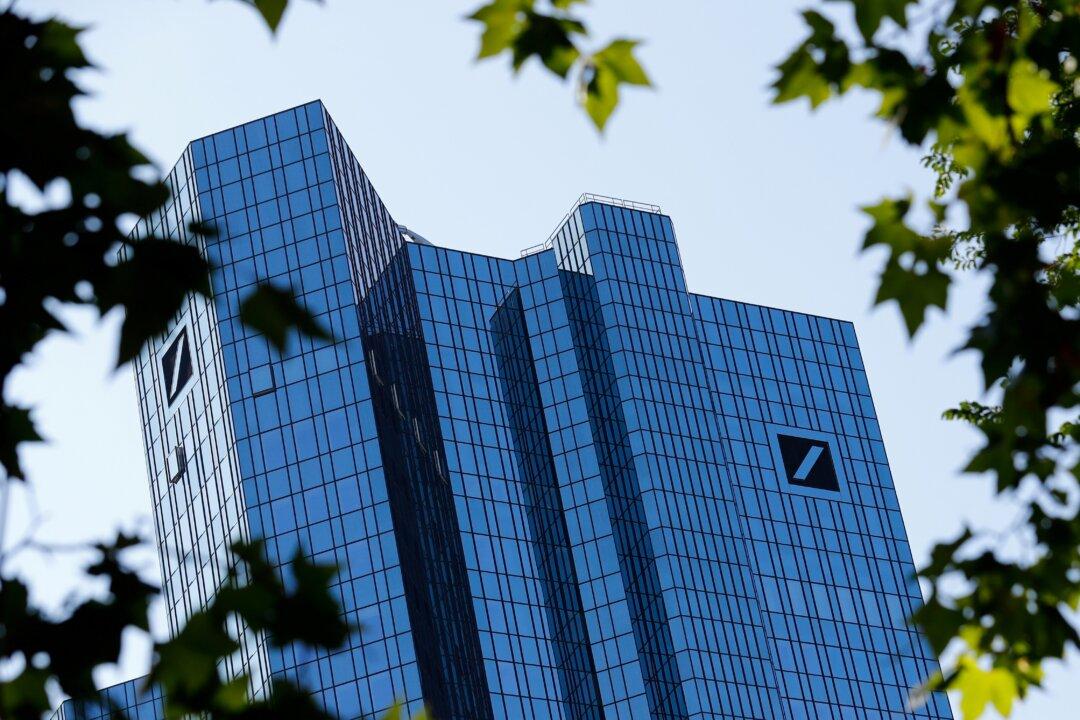FRANKFURT—Deutsche Bank said on Thursday it would cut 3,500 jobs, buy back shares and pay dividends, in its latest pitch to investors that its turnaround remains on track.
The news came as Germany’s biggest bank, seeking to put years of turmoil behind it and focus on steadier retail banking, reported a 30 percent drop in fourth-quarter profit that still beat analyst expectations.





